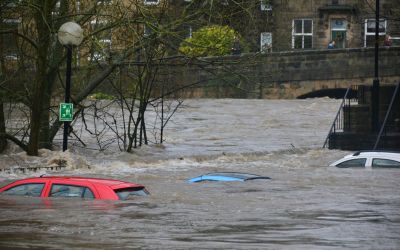UK raises over £4bn to tackle climate change in developing countries
Fresh data has shown the level of funding provided by the UK government to support overseas countries adapt to climate change.

Fresh data has shown the level of funding provided by the UK government to support overseas countries adapt to climate change.
Over the past seven years £3.3 billion of public money has been spent on supporting climate adaptation and mitigation in developing nations. A further $910 million was mobilised from private sources.
The money is channelled through the International Climate Finance (ICF) programme and has gone into a variety of projects which have helped an estimated 47 million withstand the impacts of climate change. 590 megawatts of clean energy has been installed which has helped improve electricity access to 17 million people.
These initiatives also avoided an estimated 10.4 million tonnes of greenhouse gas emissions.
This high level of investment will also continue out to 2021 with an extra £5.8 billion already commitment by the government.
Environment Minister, Thérèse Coffey said: “The UK continues to demonstrate our leadership in dealing with global environmental issues. Climate change is a cross-cutting issue with inextricable links between forests, climate, people and ecosystem services.”
“These results demonstrate the importance of international climate finance and the impacts that we can have worldwide when we deliver this finance effectively. The UK will continue to support countries to protect the world’s most biodiverse forests and contribute to development that is sustainable,” she added.
One of the flagship projects supported by the ICF programme is designed to build resilience to extreme weather events across 13 countries in Africa and South Asia. BRACED has already supported 5 million people respond to environmental impacts by developing new climate-smart technologies and practices. These projects are often centred on the agricultural industry in Africa’s Sahel region.
Learning how to grow crops that are more resilient to drought and building solar-powered wells are just two examples of the funding initiatives.






_-_frame_at_0m5s_400_250_80_s_c1.jpg)